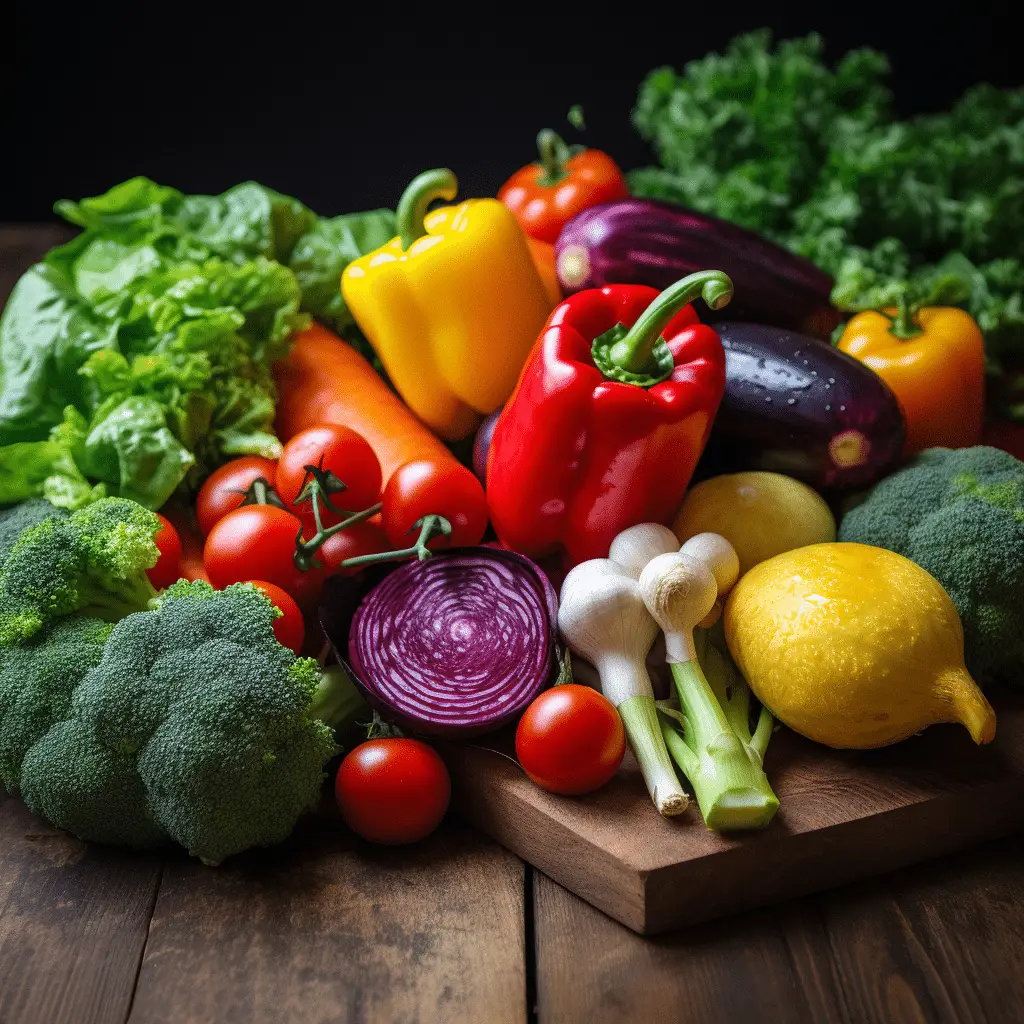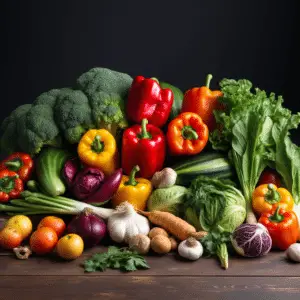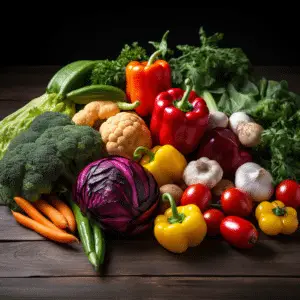
Are Vegetables Acidic or Alkaline? Exploring the Truth
Vegetables and Acidity: Debunking Myths and Facts: Vegetables are one of the healthiest foods you can eat out there. They are packed with essential vitamins and minerals to help nourish your body. They are also rich in fiber that assists in lowering cholesterol levels and promoting regular bowel movements. However, not everyone loves them.
Some people don’t fancy vegetables and only eat them once in a while or when advised to do so by their doctors. Or if they are on specific types of diet that call for vegetables. For instance, if you are told to follow a low-acid diet and have no basic nutrition knowledge, you may wonder which foods to consume.
This may prompt you to do a bit of homework to know acidic and alkaline foods. You may even start categorizing vegetables as either acidic or alkaline. But is that the case? Read on to learn more about whether vegetables are acidic or alkaline.

Are Vegetables Acidic Or Alkaline?
Most vegetables are alkaline, not acidic. That’s because they don’t increase the amount of acidity in your stomach. Vegetables also don’t trigger GERD or acid reflux symptoms, making them an excellent addition to any low-acid or alkaline diet.
Note that some vegetables like tomatoes are quite acidic before they undergo digestion. But they become alkalizing after digestion. Such vegetables are not recommended for people with severe reflux or ulcers.
Vegetables, whether raw or cooked, are packed with antioxidants that are not available in other foods. So, it’s crucial to include them in your diet as much as you can to stay healthy.
Do Vegetables Become Acidic When Cooked?
Vegetables are always alkaline and not acidic, whether cooked or raw. This means they are ideal to be part of a diet that limits acidic foods.
However, there are some cooking preparations that make vegetables acidic. For instance, canning. Vegetables canned in syrup, lime juice, or vinegar cause acid reflux-like symptoms. That’s so because of the brine they are canned in and not the vegetables themselves. So, if you’re struggling with acid reflux symptoms after consuming acidic foods, avoid canned vegetables at all costs, and stick to fresh vegetables.
The same is true for deep-fried vegetables. Foods with high-fat content are hard for your stomach to digest. And when you eat such foods, your stomach will be forced to produce more gastric acid to ensure effective digestion. This results in gastric acid rising to the esophagus, causing heartburn and other GERD symptoms.
To avoid this, avoid deep frying vegetables or cooking veggies with lots of fats. You can boil or steam the vegetables and avoid oversalting or adding too many acidic spices. Doing so ensures your veggies are healthy without increasing their acidity.
Can You Eat Vegetables When You Have GERD Or Acid Reflux?
Yes, you can eat vegetables if you suffer from GERD or acid reflux. However, the vegetables need to be raw, steamed or boiled, and they should not be fried, cooked with too much salt or spices, or brined in vinegar or lime juice.
Eating raw, steamed, or boiled veggies helps reduce acidity and offers lots of nutrients for proper nourishment and improvement of health. Vegetables are also a good source of dietary fiber, a crucial nutrient for people with acid reflux.
Fiber help soak excess stomach acid, decreasing the risk of your stomach pushing its contents up causing heartburn. Fiber also improves satiety, preventing you from overeating. Studies suggest that overeating increases the risk of heartburn. And avoiding heartburn help alleviate some acid reflux symptoms. Moreover, fiber adds bulk to stool, preventing constipation, piles, and hemorrhoids.
All these benefits show that eating vegetables is recommended for those suffering from GERD or acid reflux diseases.
Which Vegetables Are The Least Acidic?
As mentioned, all Vegetables and Acidity: Debunking Myths and Facts vegetables have alkaline-forming properties and are low in acid. For this reason, you should be fine when you eat them unless you suffer from a unique type of reflux that’s triggered by any food. However, some vegetables are more acidic than others. Here are some vegetables that are especially low in acid:
- Asparagus – 6.00-6.70
- Artichokes – 5.5.-6.00
- Corn – 5.90-7.30
- Zucchini- 5.69-6.10
- Beans – 5.60-6.50
- Spinach – 5.50-6.80
- Brussels sprouts – 6.00-6.30
These vegetables are just a few examples but there are many more. So, do your homework if you need a longer list of low-acid vegetables. Eating veggies low in acid, particularly steamed ones, is advisable for anyone suffering from acid reflux. Such vegetables are not only alkaline but also provide powerful plant components and are packed with fiber. They, therefore, help soak excess stomach acid, decreasing the acidity in your stomach.
Which Foods Are High In Acids?
Some foods contain high amounts of acids. And you may want to limit such foods if you suffer from acid reflux, GERD, or are on a low-acid diet. For instance,
- Meats, particularly red meat
- Processed foods, e.g., frozen dinners
- Dairy products like cheese
- Citrus fruits like oranges
- Sweetened and carbonated beverages like cola
Although the above foods are high in acid, that doesn’t mean they will trigger you and that you stop consuming them altogether. People have different triggers, and what works for you doesn’t mean it will work for another. The most crucial thing is to listen to your body and adjust accordingly. If a particular food doesn’t sit well with you, avoid it, and you’ll be okay.
Also, simply because a food is acidic doesn’t mean you remove it from your diet altogether. Some foods like meat and dairy are acidic, yet healthy and packed with essential nutrients. So moderate your intake of such foods and avoid overeating them.
As for the other unhealthy high-acid foods like processed foods and sweetened or carbonated beverages, you can do away with them as they’re unhealthy and may pose serious health effects.

Conclusion
Vegetables and Acidity: Debunking Myths and Facts: Are vegetables acidic or alkaline? Vegetables are generally alkaline as they don’t increase your stomach’s acidity nor do they trigger GERD or acid reflux symptoms. So, feel free to include them in your low acid or alkaline diet.
When including vegetables in your low-acid or alkaline diet, remember to use raw, boiled, or steamed veggies as they are the most recommended and wouldn’t increase your stomach’s acidity. Avoid brined, deep-fried, or vegetables cooked with lots of fats, spices, or salt; as they tend to have more acid, triggering acidity in your stomach.